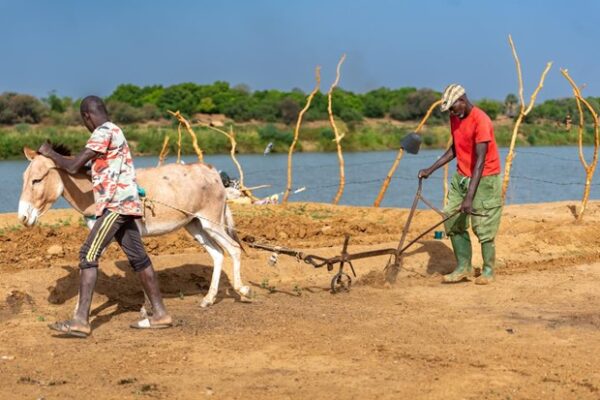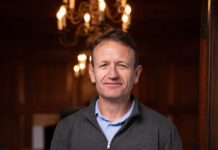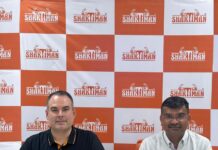The International Fund for Agricultural Development (IFAD) and the Government of the Islamic Republic of Mauritania have signed a loan agreement for 5 million euros to finance the “Joint Sahel Programme in response to the Challenges of COVID-19, Conflicts and Climate Change (SD3C G5 Sahel + Senegal)”. The agreement was signed by IFAD President Alvaro Lario and the Mauritanian Minister of Economic Affairs and Promotion of Productive Sectors, Ousmane Mamoudou Kane.
In Mauritania, the SD3C G5 Sahel + Senegal Joint programme will reach 7,500 households with approximately 45,750 participants, 50 per cent of whom are women and 40 per cent of whom are young people. The participants are mainly small-scale agricultural producers and vulnerable livestock breeders who are highly exposed to crises, as well as marginalized populations such as women with no means of subsistence and unemployed youth.
The programme will facilitate access by small producers to quality traditional seeds for basic cereal crops (sorghum, small millet and maize). It will also contribute to the rehabilitation of market infrastructure, the improvement of feeder roads and the rehabilitation or construction of 16 small economic units for the collection and storage of agricultural products. At least 100 economic projects of young people and women identified and supported by professional organizations will be financed on the basis of their business plans.
The programme activities will focus on five communes in the departments of Kobenni and Djiguenni, which are also covered by the IFAD-supported Project for Sustainable Management of Natural Resources, Communal Equipment and Structuring of Rural Producers (PROGRES).
Mauritania is one of the countries in a fragile situation. The proportion of the population living below the poverty line is as high as 40 per cent in the rural areas of the south, where IFAD’s interventions are concentrated, due to the adverse effects of climate change on the structural foundations of economic development. About 75 per cent of the poor live in rural areas, where the prevalence of poverty is mainly due to poor performance of the agricultural sector.
SD3C G5 Sahel + Senegal is a model of South-South cooperation that reflects the political will and unity of the G5 Sahel member states to address the challenges of sustainable development. IFAD, in collaboration with other Rome-based agencies (FAO and WFP), has developed this regional programme as a response to the development problems affecting the area. The five-year programme aims to strengthen the resilience of the most vulnerable rural populations in the Sahel region in a sustainable manner in order to mitigate the effects of the COVID-19 crisis, conflicts and climate change. The achievement of this objective will focus on three components: (i) Increased productivity and production; (ii) Economic integration, and (iii) Policy dialogue, coordination and management.
From 1979 to date, IFAD has participated in the financing of 16 rural development programmes and projects in the Islamic Republic of Mauritania, investing US$168.41 million and mobilizing a total of US$378.3 million. These projects and programmes have directly benefited 343,470 rural households.








